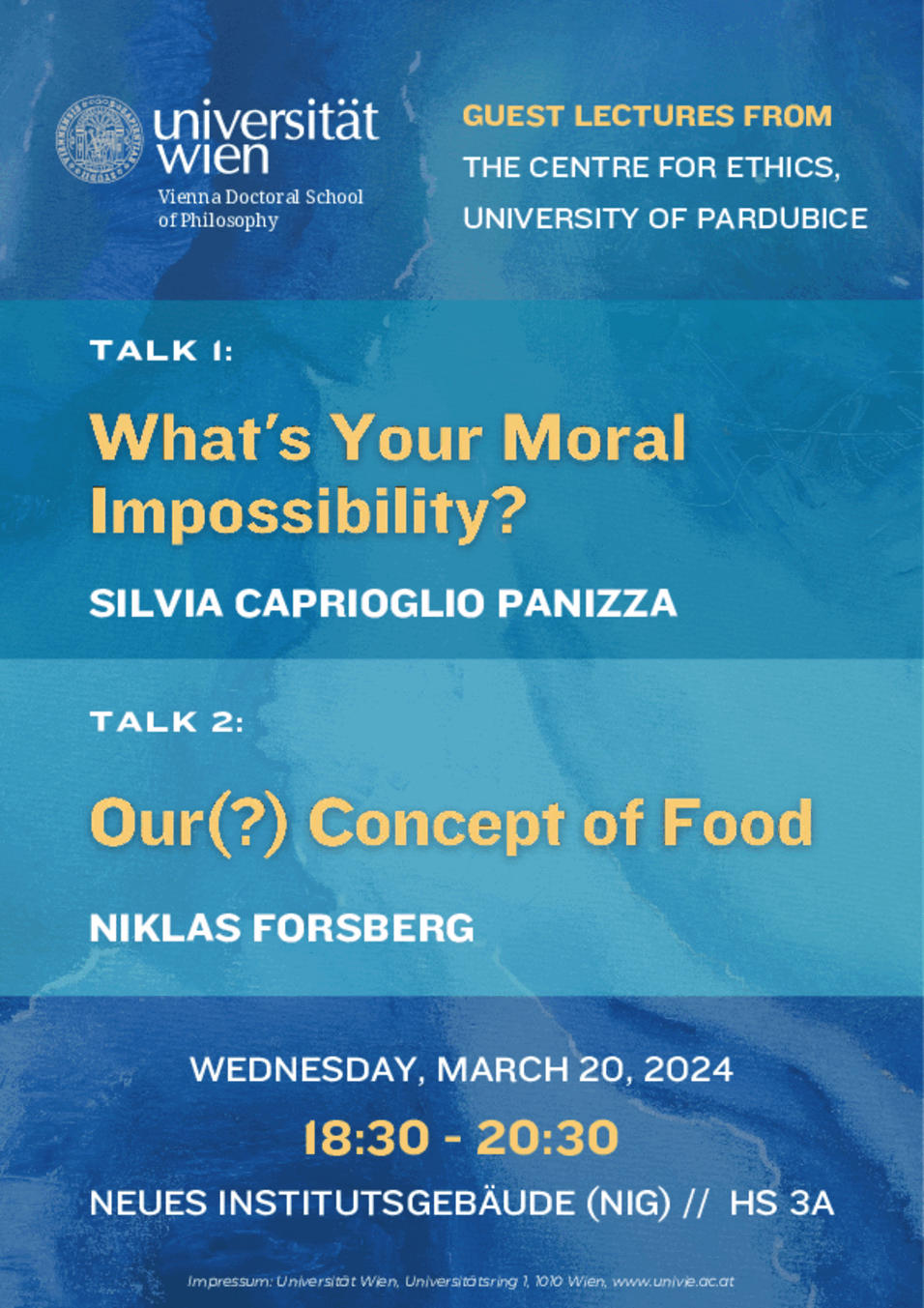Room 3A, Neues Institutsgebäude, Universitätsstraße 7, 1010 Vienna
We cordially invite you to join two talks on moral philosophy by scholars from The Centre for Ethics at University of Pardubice.
1) Silvia Caprioglio Panizza (Marie Skłodowska-Curie Fellow): What's Your Moral Impossibility?
Abstract:
Our moral agency is typically defined by what we do, what we think, what we will. I argue that equally important is the ‘dark’ side of choice, thought, and imagination – specifically, what we do not take as a possibility. I call this domain ‘moral impossibility’. In this talk I show how moral impossibility (often silently) delimits and defines our option ranges, our moral character, and our sense of value. Putting these three consequences together, I suggest an application of moral impossibility to the explanation of deep disagreement, understood as situations when one party demands what is not just wrong, but morally impossible (here in the form of ‘unthinkability’) for the other, and vice versa. If we interpret deep disagreement this way, what changes?
2) Niklas Forsberg (Head of Research): Our(?) Concept of Food
Abstract:
One of the more difficult sentences of Cora Diamond’s seminal paper “Eating Meat, Eating People” is: “it is not 'morally wrong' to eat our pets; people who ate their pets would not have pets in the same sense of that term.” There are a number in ways in which this phrase may seem challenging. One is that it ties the sense of moral value to our concepts. If people ate their pets they would have a different concept of “pet,” and because of that conceptual difference, we would not be able to simply state that they are morally wrong. This marks out conceptual differences as playing a pivotal role in marking out moral differences. Deep moral disagreements are often rooted in conceptual divergencies. It may, however, now look like morality itself is losing its foundation. Change your concepts, and you get a new morality!
In my talk, I will try to show why that is a distorted understanding of the kind of point that Diamond is making. So, I will try to show why it may actually be helpful to think about moral differences as conceptual differences. In order to see why the way of thinking that Diamond here illustrates is not a flat-out relativistic doctrine, one needs to, as Iris Murdoch (one of Diamond’s sources of philosophical inspiration) revise our concept of a concept, and perhaps also our conception of what it means to have a moral belief. There is, though, no simple route (that I can find) to clarity about these matters, so the first part of the talk will include placing a number of philosophical views and problems on the table (about moral beliefs and argumentation, human agency and responsibility, and features of the asymmetry that can be discerned between views that are reached by means of directed reasoning and views that are “merely” inherited.
Snacks and drinks will be provided!
Both talks will be in English.
If you have any questions, please contact either Konstantin Deininger (konstantin.deininger@univie.ac.at) or Erich Linder (erich.linder@vetmeduni.ac.at).
For more information about the Centre for Ethics see: https://centreforethics.upce.cz/en/

